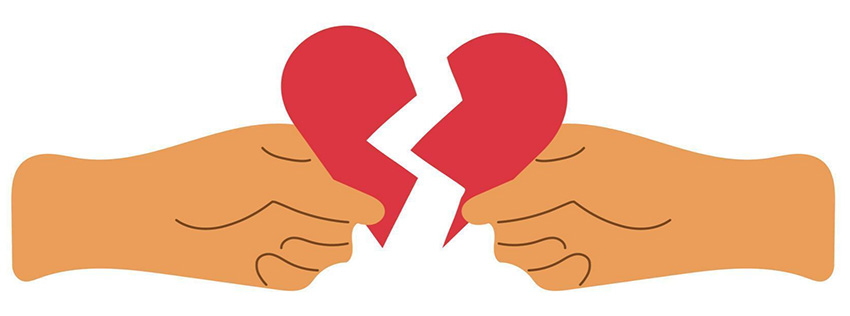A Father and His Son

Trauma brings despair, even more when it comes in the form of a life limiting illness, such as cancer.
There are also times when trauma brings people together, especially families. This is a story of such an occurrence.
It was sometime during September 2023, when a leading radiation oncologist at Nanavati Hospital, referred Abrar to PALCARE, a 65-year-old man, who lived most of his life in Saudi Arabia employed as a driver
In March 2023, Abrar started experiencing pain in his back, radiating to his chest. He visited a doctor who put him on medication, but to no relief. He felt something was wrong with him and so he gathered all his savings and returned to India. An MRI and a PET/CT scan diagnosed him with lung cancer which had metastasized to his ribs. Little did he know how dramatically the life he knew was going to change.
The PALCARE team went to visit Abrar, who was living alone in a one room apartment, in the suburb of Nallasopara. His relative, who often took him for his checkups met us. We climbed a narrow staircase to the second floor of an old building, and entered his room at the corner of the floor. His living space was tiny and unkempt. There were food, packets of medicine and his belongings scattered all around. The room was stuffy and warm, and in the middle was a thin mattress where he sat, a frail man, who looked older than his age. He tried to stand up as we entered, but we quickly sat down on the floor next to him. We introduced ourselves, and told him what we do and why we were there. At some point in the middle of our introduction he made a phone call to a nearby shopkeeper and ordered a few bottles of soft drinks for us. As we sipped from the bottle, he shared his story.
Abrar’s wife passed away seven years ago due to cancer. “I wasn’t there when she died. I wasn’t quite there when she lived.” he murmured. “I wasn’t there for my son too, and that’s why he hasn’t come to see me yet.”
His son, married, and with a daughter, lived not too far from him. Their relationship had been a tumultuous one, and he had almost no involvement in his father’s care or his life. Abrar’s emotional pain was evident, and so was his physical pain in his back radiating to his chest, which was prominent while taking deep breaths while talking. The pain was intense, which further disturbed his sleep. We could see his care was neglected; we could see he was helpless.
It was our first visit and we realized his physical symptoms needed to be brought under control urgently. Keeping that in mind, the doctor drew a care plan. We also needed someone to overlook Abrar’s care. And fortunately, one of his relatives agreed he would.
On one such visit, in mid-November, Abrar mentioned that his son called and spoke with him for a while, he asked him to come home and stay with him and his family. I asked him if I could speak with his son, he could not agree more.
 In the coming days, despite momentary relief, we realized the care plan was not followed properly. Medication was not procured and administered on time, there was forgetfulness, neglect, and Abrar’s relative was not present in his care. We knew Abrar could not take care of himself, and yet we had to work within the frame work that presented itself. The PALCARE team made frequent visits, often with medication which we kept in place. There was much distress, pain, and a lot of work to be done.
In the coming days, despite momentary relief, we realized the care plan was not followed properly. Medication was not procured and administered on time, there was forgetfulness, neglect, and Abrar’s relative was not present in his care. We knew Abrar could not take care of himself, and yet we had to work within the frame work that presented itself. The PALCARE team made frequent visits, often with medication which we kept in place. There was much distress, pain, and a lot of work to be done.
We spoke over the phone, I let him in on his father’s prognosis and his general condition. I told him that his father could not do this alone, and that some arrangements needed to made where he would be taken care of. His son was emotional, I could sense he was in a lot of spiritual pain. In a broken voice he said, “I lost my mother to cancer, my father wasn’t there for her, he was hardly ever there. I’ve been carrying that hurt with me since. But I realize what’s done is done, and I need to take care of my father, I want to take him home.”
The next day, he came and took his father with him, to his home. When the PALCARE team visited them, Abrar looked well kept, he was having a sandwich, he looked happy and taken care of. The referring doctor was quite active in his care and symptom management. There was frequent communication between him, the son, and our team doctor. Abrar’s pain was in substantial control, and although he was in a better place, his cancer was spreading. As his symptoms expanded, medications were added and the care plan was modified. Finance was limited, so PALCARE provided him with most of his medications, free of cost.
As the days went by, Abrar’s cognition declined, episodes of irrelevant talks increased, hallucinations set in. The PALCARE team was working closely with the family and were able to manage these symptoms, but the disease was progressing and the symptoms persisted. Abrar’s son had to pause his work and mostly stayed home. He was doing his best to take care of him, until one night, when everyone was asleep, Abrar went into the kitchen to refill his hot water bag and when by accident he almost lit the kitchen and himself on fire. He also had a fall. A major accident was averted that night. In the coming days, the son realized it was getting difficult to manage his father at home. Hiring a caretaker was not affordable. It was then when moving him to a hospice came as a suggestion. However difficult it was, we all felt that was the right thing to do.
Abrar was shifted to Shanti Avedna Sadan, a hospice in Bandra. He was there, under their care. In the month of December, one early morning a few days before Christmas, Abrar breathed his last. His son and his family were out of town for a few days when he got the call from the hospice. They needed someone to pick up his body immediately as they could not keep him any longer. His son was stuck in a different town. With no means to return for another few days, he consented for his relative to take possession of his father’s body, who in his own indiscretion, buried him, without the presence of his son
On the bereavement visit, the son mentioned that he was in a conflicted state of mind. While he was glad he could spend time with his father and was able to take care of him in his final days and that there was some kind of closure to their estrangement of earlier days, as also that his father’s suffering was finally over, but at the same time he was also sad and angry that he couldn’t see his father’s body, one last time.
*Name has been changed for the purpose of confidentiality*

